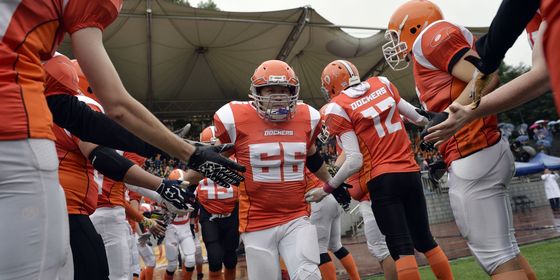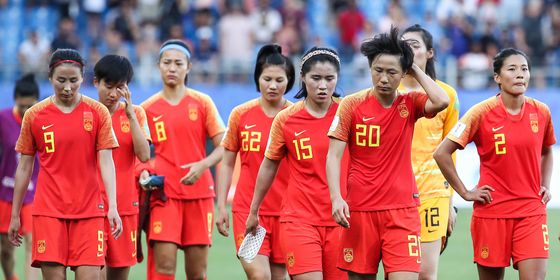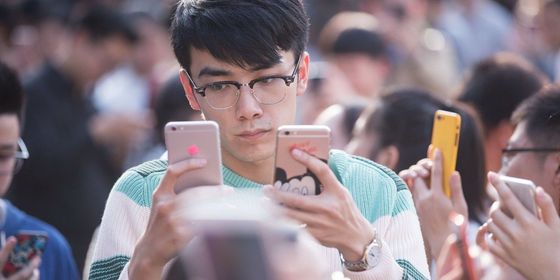The latest news in China’s expensive football player purchases
If we wanted football to be played the way Americans play it at the Superbowl, perhaps we would have called it “kicks-included-hardcore-handball” or just “rugby with helmets.” In the US, football means one thing, but in the Middle Kingdom, it’s soccer. For many aspiring Chinese sports fan, China becoming an international presence in the world of soccer has been the lifelong dream. President Xi Jinping, for example, announced last month that he wanted to transform China into a great football power.
So what’s China doing to get there?
In a country where the top ten football leagues followed on social media, such as Sina Weibo, are from the Premier League, China’s top followed team is Manchester United (with 8.7 million followers). That says a lot about fans in China. While some of the trending forums about football go from topics such as ‘The Most Handsome Footballer” or “How to Fake Football Fandom,” the truth is that in football, China is changing. And a lot of that change has involved foreign players.
Over the past decade, various professional football players have migrated from renowned European teams to Chinese ones. Jackson Martinez from Atletico Madrid who now plays at the Guangzhou Evergrande or Brazilian Alex Teixeira from Shakhtar Donestk (Ukrainian League), now playing at Jiangsu Suning, are just some examples. However, the most recent acquisition made just last month was Chelsea FC’s accepted deal of 71 million euros (74 million US dollars) for Oscar dos Santos to play at Shanghai SIPG.

Oscar dos Santos [Wikicommons]
In light of such spending, last week China’s General Administration of Sport, the country’s chief sport governing body, announced that economic caps will be put in place. Admittedly, a ban might make some sense when you consider that some football players are offered deals worth more than $380,000 a week, such as the deal given to Argentinian Carlos Tevez.
“The country is burning money,” a spokesperson from the Administration said to the BBC.
China has been reforming its football administration. Over the last months, the Chinese Football Association has tightened its rules regarding the number of foreign players that can participate at the time. Originally, the number was four but now it has changed to five. It also banned the use of foreign goalkeepers altogether.
But some people have argued that since the beginning of the 90s, the state-sponsored Chinese FA has allowed teams to get corporate sponsorship from foreign investors, resulting in high salaries for directors. Fact. It’s also known that for regular football matches in Chinese Super League, bribes of up to two million RMB (about 300,000 USD) were offered to referees and players without being noticed until just recently.
We get it, it’s relatively normal to hear cases of corruption associated with the sport that drives millions of people to watch their own national team on TV. But according to Frank Ding, president of the Blue Devils, Shenhua’s greatest fan club, “irregular transfer payments is the name of the game in China. It’s really a very murky environment and a lot of this money is not staying in football. It’s going into the pockets of middlemen, it’s going into the pockets of people inside the clubs… the owners don’t really care exactly where the money goes.”

Worker’s Stadium in Beijing [Wikicommons]
On the other hand, the Chinese government has repeatedly signaled its intention to crack down on corruption, including the corruption plaguing the soccer world. Whether or not this will occur is anyone’s guess. It doesn’t help that there are a lot of questions regarding the governance of football organizations. Some say that the football association and the people that police it are separate, while some reports show that the association is basically its own governing body. This would mean that investigations regarding wrongdoing are subjected to the administration’s own jurisdiction, which would make arresting football officials for corruption almost impossible.
Although the Chinese FA has created its own “independent professional league council,” it is uncertain what type of scandals we shall expect (both from football players and high-rank officials), when the Chinese Super League 2017 begins next month.
Meanwhile, maybe we can start preparing for it by learning the word diaosi (屌丝), a slang term that translates to “loser.” It has been frequently used to attack rival football fans but today the term refers to the sentiment of being a “self-aware loser” that is mostly associated with the youth’s feeling of economic inferiority in China’s modern market economy.
For the rest of us, well, it’s a handy insult for when the other side scores another goal, damnit.
Cover picture via The Conversation.











